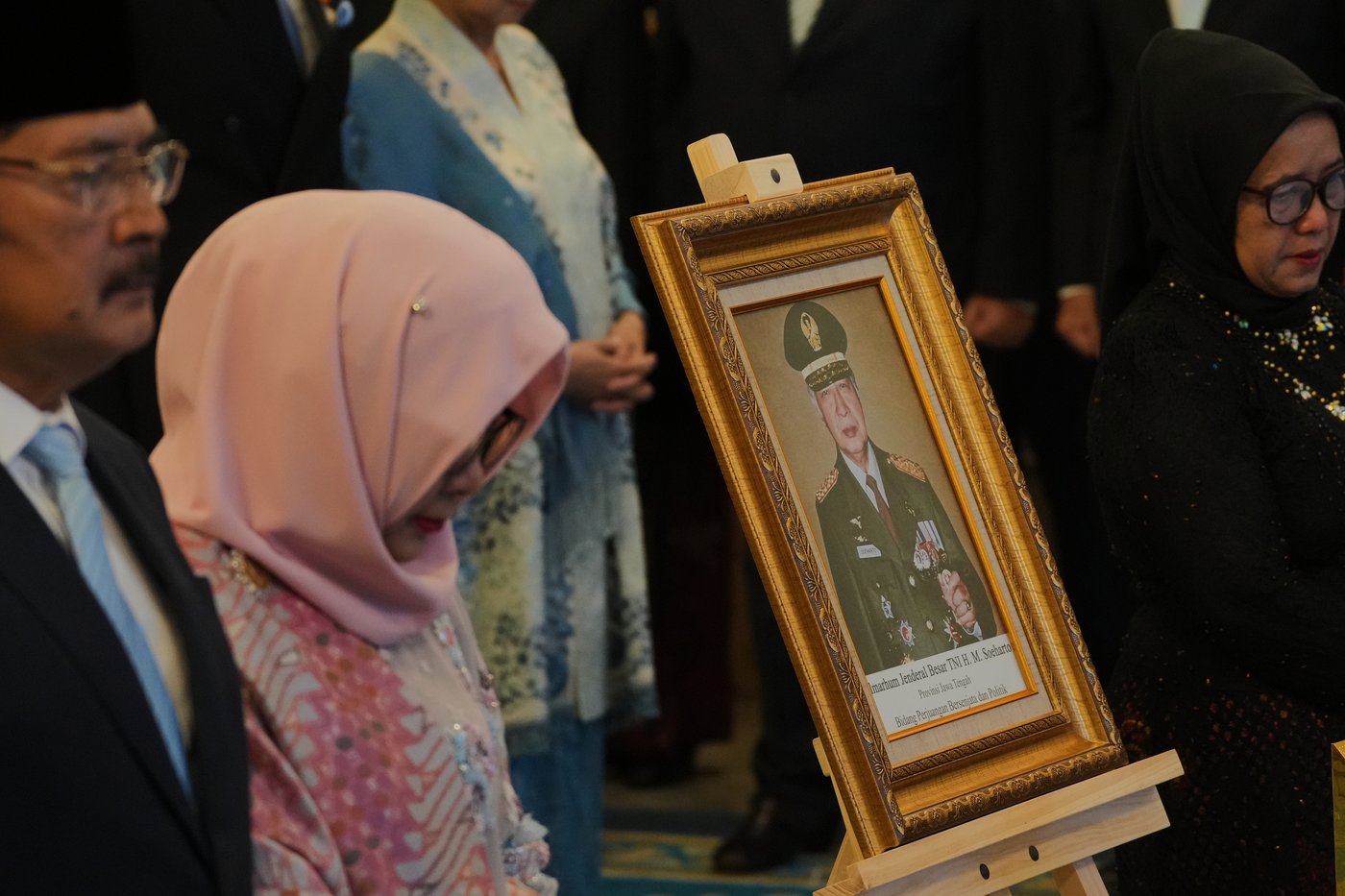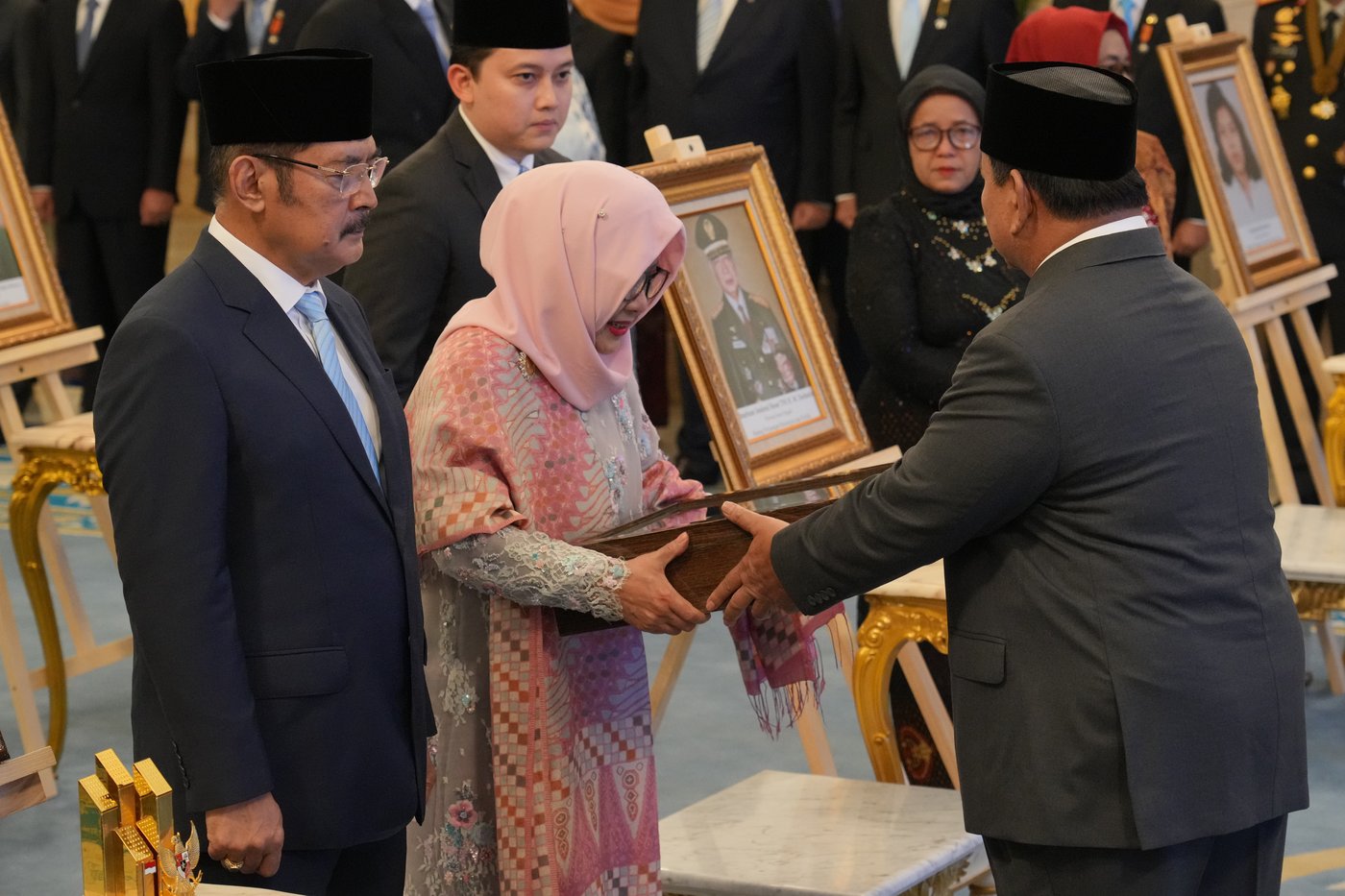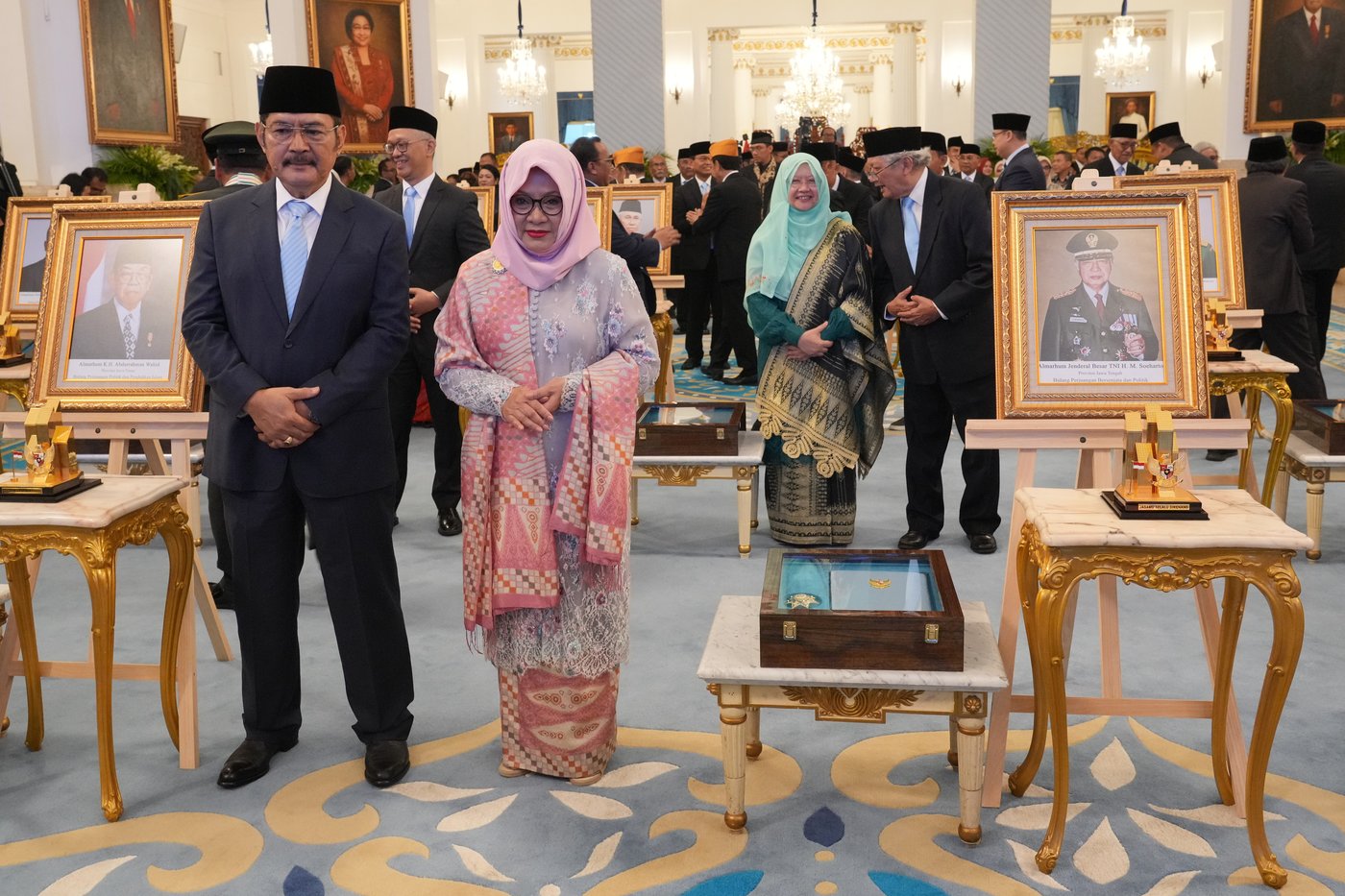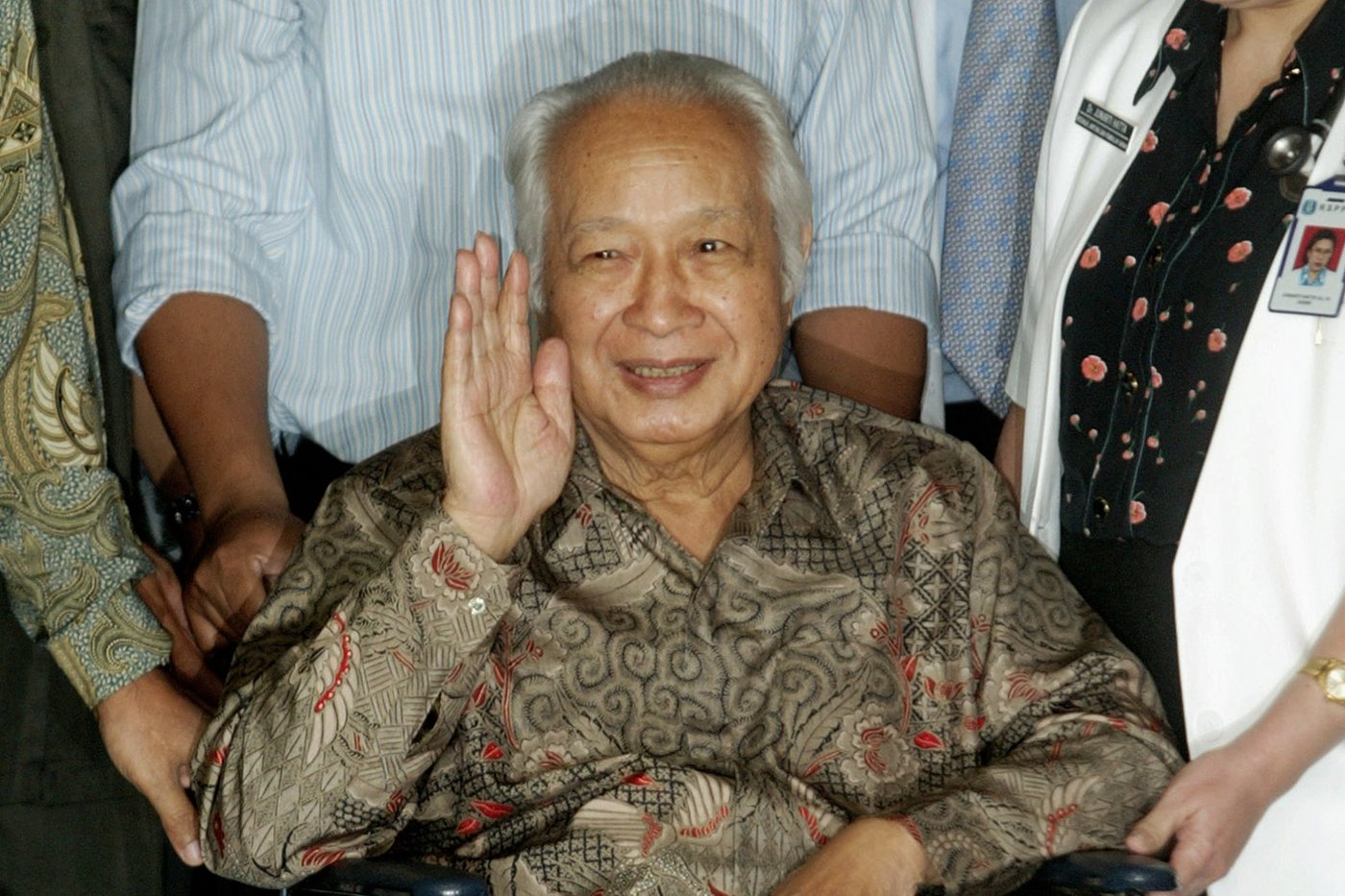Elevate your local knowledge
Sign up for the iNFOnews newsletter today!
Sign up for the iNFOnews newsletter today!
Selecting your primary region ensures you get the stories that matter to you first.

JAKARTA, Indonesia (AP) — Indonesia declared the former dictator Suharto a national hero on Monday, provoking outrage from rights group who said the move was an attempt to whitewash decades of human rights abuses and corruption that took place during his 32 years in power.
Suharto was a U.S. ally during the Cold War who presided over decades of authoritarian rule, during which up to a million political opponents were killed, until he was toppled by protests in 1998.
He was one of 10 people recognized by President Prabowo Subianto in a televised ceremony held at the presidential palace in Jakarta to mark National Hero Day.
Minister of Culture Fadli Zon said that Suharto played a key role during the struggle for independence against its Dutch colonial rulers, and later served as commander of a military operation that helped take control of what is now West Papua from the Dutch.
Zon also credited the former dictator with alleviating poverty and taming inflation, as well as defeating a Communist uprising. He ruled out allegations of corruption and serious human rights abuses as unproven.
Prabowo, the current President, had close ties to Suharto, under whom he rose through the ranks of an Indonesian special forces unit accused of extensive human rights abuses. He and other members of the unit were banned from traveling to the U.S. until 2020, when it was effectively lifted while he was serving Indonesia’s defense minister.
He was married to Suharto’s daughter Siti Hediati Hariyadi from 1983 to 1998. Prabowo did not make any statement after the ceremony.
Former President Abdurrahman Wahid, who revoked many of Suharto’s repressive laws and Marsinah, a prominent labor activist who was killed during the dictatorship, were also among 10 figures recognized as heroes on Monday.
Marsinah was found murdered in 1993 at the age of 24 after a disappearance following a scuffle with military personnel.
Suharto ruled Indonesia with an iron fist
Suharto held power with an authoritarian approach that saw soldiers stationed in every village until he was chased from office by widespread unrest at the peak of the 1997-1998 Asian financial crisis.
He was accused of responsibility for the killings of hundreds of thousands of political opponents during his time in office, but poor health — and, critics charged, continuing corruption — kept him from facing trial until his death in 2008.
The bulk of killings occurred in 1965-1966 when between 300,000 and 800,000 alleged communists were rounded up and slain during his rise to power. Over the next three decades, a further 300,000 people were killed, disappeared or starved in the independence-minded regions of East Timor, Aceh and Papua, according to human rights groups and the United Nations.
Suharto’s hero status sparks national debate
Survivors of state violence under Suharto voiced outrage about the honor.
“I was shocked, disappointed and angry with this government’s absurd decision,” said Bedjo Untung, who was imprisoned without trial after being accused of involvement with the Indonesian Communist Party and now chairs the 1965 Murder Victim’s Research Foundation.
Untung, who was tortured during his 1970-79 imprisonment, said his family suffered years of discrimination and hardship due to his alleged ties to Communism.
“It feels deeply unfair, we are still living with the suffering until today,” Untung said.
Suharto has been nominated for the title of national hero multiple times since 2010, but previous Indonesian leaders rejected the idea in the face of debate and national outcry.
Prasetyo Hadi, the Minister of State Secretary, said the candidates for this year’s honors were recommended by the parliament after an in-depth discussion with the national assessment committee for national hero and society groups.
“This is part of our respect for our predecessors, especially our leaders, who have undoubtedly rendered extraordinary service to the nation,” Hadi told reporters ahead of the announcement.
Jaleswari Pramodhawardani, a senior policy analyst at Laboratorium Indonesia 2045, said the national hero title upon Suharto challenges not only the nation’s collective memory but also its unwavering commitment to transitional justice and the mandates of the 1998 reform movement.
To bestow the title of hero upon the architect of the gross human rights abuses is “to de facto pardon state violence, permanently freezing the pursuit of justice for countless victims,” Pramodhawardani wrote.




This site is protected by reCAPTCHA and the Google Privacy Policy and Terms of Service apply.
Want to share your thoughts, add context, or connect with others in your community?
You must be logged in to post a comment.